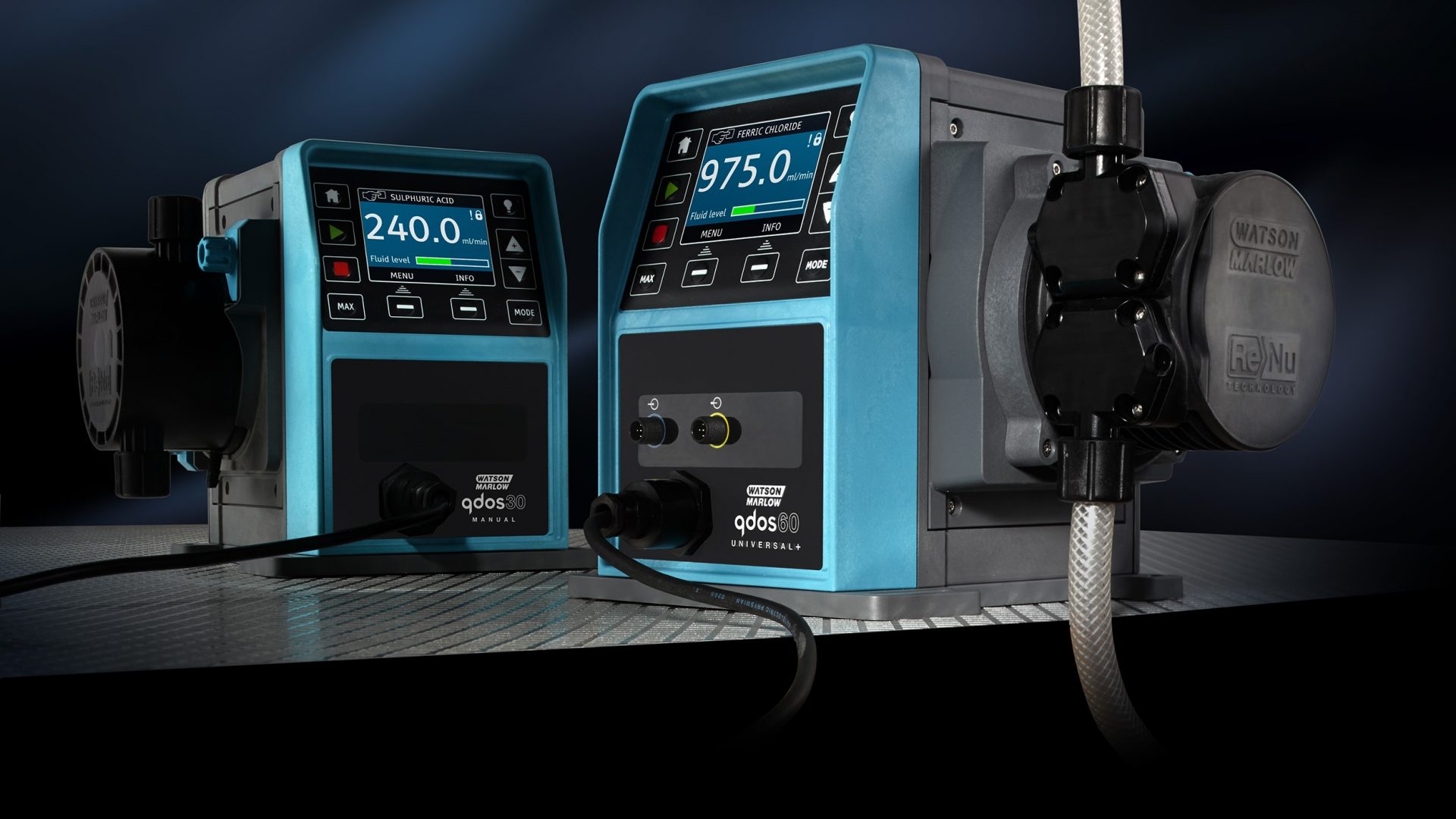Watson Marlow Fluid Technology Solutions (WMFTS) has helped with a revision of the Water Industry Mechanical & Electrical Specifications (WIMES), opening up peristaltic pumps to more potential customers in the UK water industry.
Peristaltic pumps, such as WMFTS’ range of Qdos chemical metering pumps for water and wastewater treatment applications, had not previously had the benefits of their technology explained in the specifications.
The revised WIMES now contains comprehensive dosing pump specifications, with a number of the benefits of peristaltic pumps now more apparent and explicitly covered in the latest version.
WIMES is a collaborative project managed by the Pump Centre, aimed at providing common mechanical and electrical specifications for the UK water industry. Seventeen of the UK’s largest water companies are involved in WIMES, which enables them to procure equipment which is fit for purpose and provides the lowest lifecycle costs at a competitive purchase price.
The intention of WIMES is that the specifications should be unambiguous and allow individual suppliers to compete on an equal footing, so buyers can accurately compare and contrast suppliers.
Dale Kavanagh, industrial sales & business development manager at WMFTS UK, said:
“The specification has been rewritten so there is more detail about peristaltic pumps, and their benefits compared to other pump types. It is a huge result and has helped develop the business this year.
“For the last two years Watson Marlow have been working hard to ensure that the latest version of the specifications would have a fairer balance, showing the advantages of peristaltic pump technology. This ongoing work has resulted in large orders from several water companies in England.
“Watson-Marlow were able to get a seat at the table and collaborated with water regulators, putting the case forward on why peristaltic pumps are beneficial. The success was a result of a lot of hard work, in particular from sales skills training manager Bruce Quilter and former UK industrial sales engineer Eddie Smeaton.”
Greater reliability
WMFTS’ Qdos range of peristaltic pumps can handle flow rates from 0.1 to 2,000 megalitres a minute at pressures up to 7 bar as well as offering repeatable chemical metering accuracy of ±1 per cent.
With a Qdos pump, the flow remains the same at any pressure, providing greater dosing control and leading to measurable chemical and energy savings – a key difference to other equipment on the market. The low maintenance design also means process uptime is maximised with no-tools and quick and easy pumphead replacement in situ.
A reverse function enables the operator to drain the line before maintenance and, once in operation, there is an integral leak detector to eliminate the risk of exposure to chemicals. Integration of the Qdos pump range is easier than traditional dosing pump types as they eliminate the need for foot valves, strainers, degassing valves and loading valves, along with all the relevant joints, simplifying maintenance and enabling dosing skid manufacturers to reduce the size of their skids.
Roger Marlow, principal consultant at the Pump Centre, commenting on the more comprehensive dosing pump specification in the updated WIMES, said:
“Water managers and engineers of large water infrastructure projects are looking to alternative pumping technologies for many reasons. The landscape of chemical metering pump manufacturing and innovation in the water industry is changing and it is important for WIMES documents to reflect that.
“It has been a very positive experience working with Watson-Marlow and we will continue the collaboration between all parties in the future.”
Reflecting on the current landscape of chemical dosing equipment, Kavanagh said:
“The scale of the rollout of new equipment makes now an ideal time for utilities to consider the whole-life benefit of the chemical dosing equipment they select. As such, it is believed that Qdos pumps an ideal solution to meet companies’ water management challenges.”



